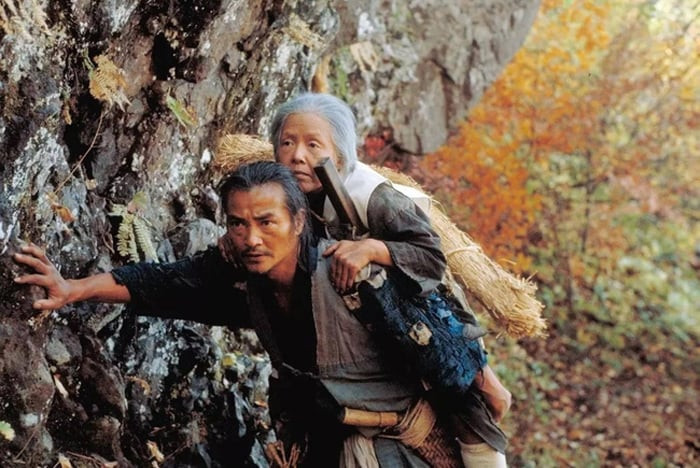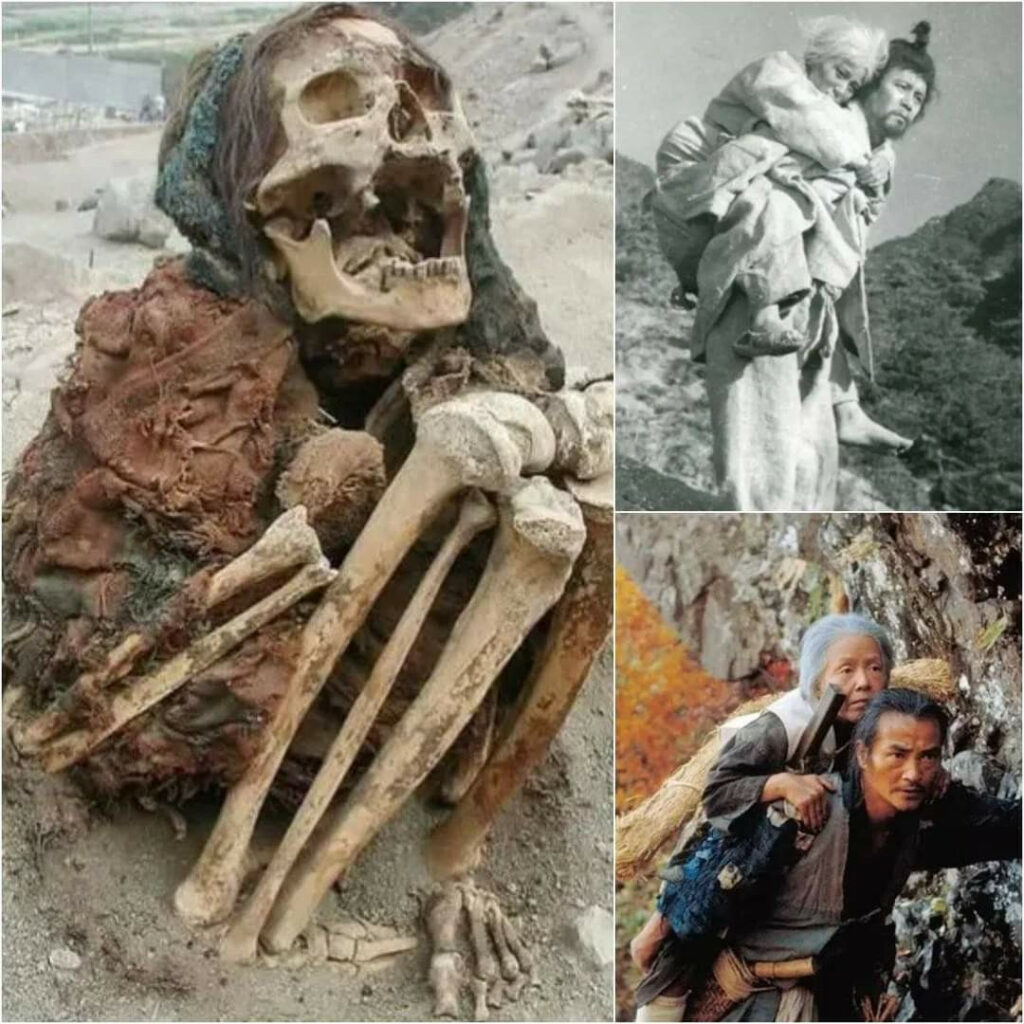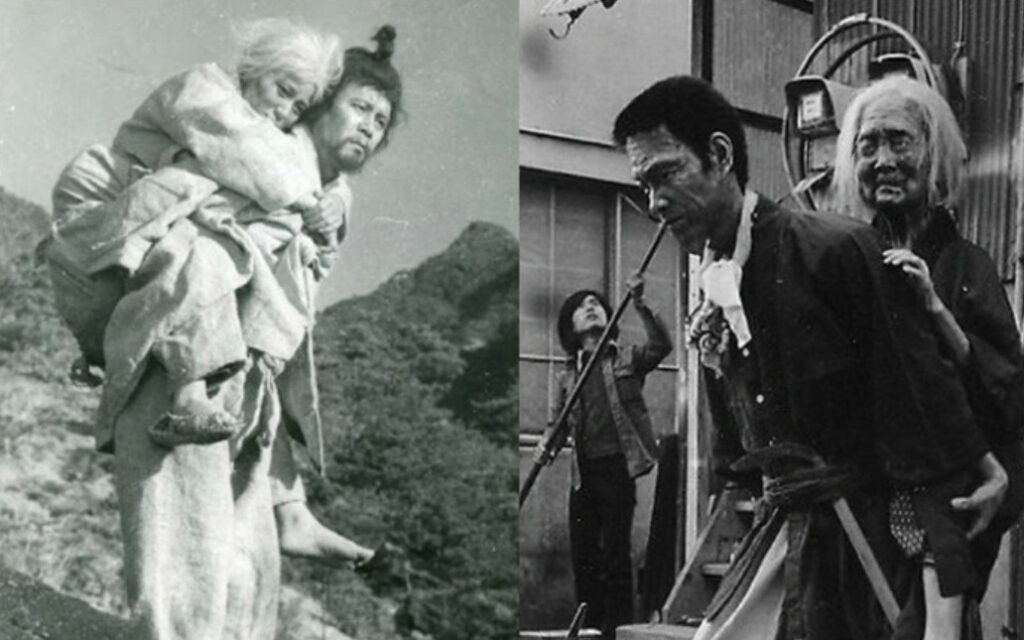A Tradition Born from Desperation: The Haunting History of Ubasute
In the depths of Japanese history, few practices evoke as much sorrow as Ubasute. This ancient custom involved the heartbreaking act of abandoning elderly mothers in isolated areas to face a solitary death. While the exact origins of Ubasute are unclear, one theory connects it to the Great Teimei Famine of 1783, which was triggered by the eruption of Mount Asama. As crops failed and famine spread, communities faced the grim reality of needing to reduce their population, leading to the painful decision to leave behind those deemed unable to contribute.

The Legend of Ubasuteyama: A Mother’s Enduring Love
Among the many stories tied to this practice, one stands out: the tale of Ubasuteyama, or “Abandonment Mountain.” It tells of a son who had to carry his elderly mother up a mountain to leave her behind. As they ascended, the mother, aware of what awaited her, broke branches along the path. When her son asked why, she explained that she was marking the way to ensure his safe return. This final act of maternal love moved the son deeply, prompting him to defy tradition and carry her back home.

Reflections on an Ethical Dilemma
Ubasute forces us to confront uncomfortable questions about aging, caregiving, and the value of human life. While this practice can be easily condemned by modern values, it’s essential to consider the extreme hardships that led to such decisions in the past. This tradition challenges us to examine our own societal attitudes toward the elderly and reflect on the lengths we might go to in times of crisis.

The Legacy of Ubasute
Today, Ubasute stands as a stark reminder of our ancestors’ struggles and the evolution of societal norms. It sparks vital discussions about compassion, family connections, and the dignity of aging. By exploring this controversial part of history, we are encouraged to reflect on our responsibilities toward the elderly and recognize the enduring power of familial love, even amidst unimaginable hardship.
This haunting chapter in history not only highlights the desperation faced by communities but also serves as a powerful call for empathy and understanding in our own lives.


